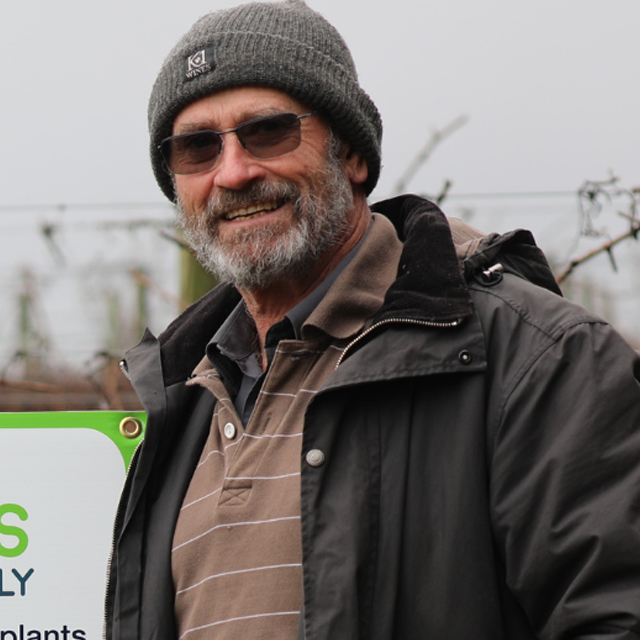1. Tell us about your experience in grape growing?
I have been involved in grape growing since 1978, including consulting to and owning vineyards in McLaren Vale, Adelaide Hills, Langhorne Creek, and the Limestone Coast.
Our Adelaide Hills vineyard ‘K1’ was the first significant planting in the Kuitpo region and currently has a large variety of grapevine varieties.
2. What prompted you to want to be involved in the EcoVineyards project?
We have been interested in joining the project since first hearing about Mary Retallack’s fabulous research and through this program it has been great to learn more about species endemic to our area and how they can have supportive effects on grape growing.
3. What do you hope to achieve from your involvement in the EcoVineyards project?
We have a particular issue with scale in our Pinot Noir 777 block so are interested to see if we can do anything here. We are trialing myporum and ruby saltbush undervine to offer a harboring site for beneficials.
We plan to increase beneficial plants on the property to improve soil health and valuable biological diversity to support vine health, fruit health with the added benefit of increasing carbon drawdown.
4. Have you tried to increase biodiversity on your property before undertaking this project? If so, how?
Yes, we are always looking at ways to support our biodiversity. Our K1 property has 80 acres of native remnant scrub and in addition to this we have revegetated the riparian zones of the property with about 500 indigenous trees and shrubs. We use a recycling spray cart and carefully select our spray materials to ensure no negative impacts on the environment. We hope to further reduce the need for pest and disease control by developing a better mix of micro-elements to naturally aid us in this task.
5. Why do you think it is so important for growers to try and build natural resilience on their property?
To reduce the need for artificial controls that may impact negatively on the environment.
Conscientious stewardship of land and natural resource is an important task and through supporting the natural environment it can have economic (less inputs), environmental (support biodiversity above and below the ground) and social benefits (less chemical use).
6. Looking to the future, what do you see as a new ‘normal’ for grape growers on their properties?
We see the aesthetics of vineyards changing with the use of more natural growing techniques like the use of mainly native plants undervine to benefit soil, suppress weeds and improve the microenvironment for our vines. (i.e., Mary’s suggested strainer post ‘rose bush’ replacement by Christmas bush [Bursaria spinosa] to increase the local numbers of beneficial insects).
In improving our soils and biodiversity we strongly believe we will be rewarded with healthier plants and higher quality grapes.

